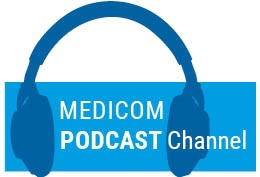"Several lines of evidence suggest a link between imbalanced inflammatory signaling and BD," Dr. Maria Marchetto of the Salk Institute for Biological Studies in La Jolla told Reuters Health by email. "BD patients show a higher prevalence of comorbid diseases with an inflammatory component, such as cardiovascular disease, diabetes mellitus and the presence of an immune-related metabolic syndrome."
"Meta-analyses of several human studies reported higher concentrations of circulating pro-inflammatory cytokines such as IL-6 and TNF-alfa in BD patients," she added.
"Astrocytes are immunocompetent cells known to participate in the inflammatory cascade within the brain by being activated by pro-inflammatory cytokines...and, in turn, secreting cytokines that participate in the process of neuroinflammation," she said.
"Our results suggest that BD astrocytes are functionally less supportive of neuronal excitability and this effect is partially mediated by IL-6," she said. "We confirmed higher IL-6 in blood in a distinct cohort of BD patients, highlighting the potential role of astrocyte-mediated inflammatory signaling in BD neuropathology, opening new avenues for clinical intervention."
The researchers previously had published in Stem Cell Reports a method for rapidly generating inflammation-responsive astrocytes from human-induced pluripotent stem cells (iPSCs) via a glial precursor intermediate (https://bit.ly/3kVjWDn). They used that protocol for the current study, also published in Stem Cell Reports, to study inflammation-related phenotypes of iPSC-derived astrocytes generated from BD patients and healthy controls.
Astrocytes from patients revealed a unique transcriptional pattern when exposed to pro-inflammatory cytokines, which was characterized by higher expression of the IL-6 gene compared to control astrocytes.
Exposure to the culture medium from BD-stimulated astrocytes was sufficient to decrease the activity of co-cultured neurons, an effect that was partially blocked by IL-6-inactivating antibody.
"Our results suggest that BD astrocytes are functionally less supportive of neuronal excitability and this effect is partially mediated by IL-6," the authors state. "We confirmed higher IL-6 in blood in a distinct cohort of BD patients, highlighting the potential role of astrocyte-mediated inflammatory signaling in BD neuropathology."
Three experts familiar with the team's work commented by email to Reuters Health.
Dr. K. Sue Shea, a professor of Cell and Developmental Biology and of Psychiatry at the University of Michigan Medical School in Ann Arbor, said, "This is important research that suggests new approaches to understanding, and therefore treating, BD and other neuropsychiatric disorders. It represents a novel system to study neuroinflammation; a model to examine cell-type- specific influences of neuroinflammation; and a new approach to study acute and potentially longer-term effects of neuroinflammation."
Dr. Hongjun Song, Perelman Professor of Neuroscience in the Perelman School of Medicine, University of Pennsylvania in Philadelphia, noted, "Modeling human disorders using patient-derived stem cells is an area of intensive study. The advantage is that it can be used to investigate a variety of cell types and these cells contain the same genetic composition as the patients, such as risk variants associated with the disorder."
"One general caveat with stem cell-based analysis is that most cells generated are immature, which are different from the cells in the patient's brain," he said. "But this study provides the clue for future studies to look at bipolar patient postmortem brain samples using assays, such as single-cell RNA-sequencing, to see if IL6 is indeed elevated in astrocytes."
Dr. Kristen Brennand, Adjunct Associate Professor in the Nash Family Department of Neuroscience at the Icahn School of Medicine at Mount Sinai in New York City, said, "This study is one of the first to demonstrate that heritable differences in astrocyte function might contribute to, rather than result from, aberrant neuronal function in BD."
"It is important to explore this phenomenon across much larger patient cohorts in order to uncover if astrocyte inflammation is correlated to genotype, clinical characteristics, or treatment response," she added. "By better understanding the role of glia in BD, it might be possible to discover novel treatments or prevention (strategies) for psychiatric disease."
SOURCE: https://bit.ly/3kUpYUO Stem Cell Reports, online March 4, 2021.
By Marilynn Larkin
Posted on
Previous Article
« Similar efficacy, but fewer AEs, with vibegron versus antimuscarinics for OAB Next Article
Post-traumatic migraine tied to longer recovery after youth concussion »
« Similar efficacy, but fewer AEs, with vibegron versus antimuscarinics for OAB Next Article
Post-traumatic migraine tied to longer recovery after youth concussion »
Related Articles

September 28, 2020
MS Virtual 2020 Highlights Podcast
December 10, 2024
What brain changes are associated with fremanezumab treatment success?
© 2024 Medicom Medical Publishers. All rights reserved. Terms and Conditions | Privacy Policy
HEAD OFFICE
Laarderhoogtweg 25
1101 EB Amsterdam
The Netherlands
T: +31 85 4012 560
E: publishers@medicom-publishers.com

